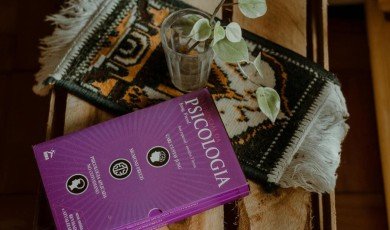
Are you fascinated by the human mind, its mysteries, and what drives our actions? Psychology books deliver powerful insights into what shapes thoughts, emotions, relationships, and cultures. Whether you’re a psychology student, a lifelong learner, or just curious about how your own mind works, the following must-read titles belong on your shelf. Here’s a curated list of some of the most influential, thought-provoking, and accessible nonfiction books in psychology.
"Thinking, Fast and Slow" by Daniel Kahneman
A global bestseller and Pulitzer Prize winner, Daniel Kahneman’s *Thinking, Fast and Slow* distills decades of Nobel Prize-winning research on human decision-making. Kahneman explains that we operate with two systems: System 1 (fast, intuitive thinking) and System 2 (slow, deliberate thinking). The book reveals how biases, shortcuts, and faulty reasoning creep into our everyday judgments—from financial decisions to forming impressions of other people. Accessible yet profound, this book will forever change how you see your own thought processes.
Why read it? It’s an essential primer on cognitive psychology, showing you why people (including you) make irrational decisions and how to spot your own thinking traps.
"Man’s Search for Meaning" by Viktor E. Frankl
Blending memoir and psychology, Holocaust survivor Viktor Frankl chronicles his experiences in Auschwitz and other concentration camps to explore a fundamental human question: What makes life worth living? Introducing his approach known as logotherapy, Frankl argues that the pursuit of meaning—even in the face of suffering—is the central human motivation. This deeply moving, concise book has inspired millions with its resilience and wisdom.
Why read it? It’s both a gripping narrative of survival and a practical guide for finding purpose and hope in the most challenging circumstances.
"The Man Who Mistook His Wife for a Hat" by Oliver Sacks
If you’re curious about the mind’s complexity and quirks, neurologist Oliver Sacks’ case studies are a must. In *The Man Who Mistook His Wife for a Hat*, Sacks recounts real-life patients with unusual neurological disorders—people who lose their identities, see the world in fragments, or confound their senses. Sacks writes with empathy, humor, and clarity, letting readers marvel at both the fragility and resilience of the human brain.
Why read it? It opens a window into extraordinary minds, celebrating human diversity and revealing the deep connections between brain, body, and selfhood.
"Influence: The Psychology of Persuasion" by Robert B. Cialdini
Why do people say yes—or fail to resist manipulation? In this classic split between business and psychology, Robert Cialdini identifies six key principles of influence: reciprocation, commitment and consistency, social proof, authority, liking, and scarcity. Using vivid real-world examples, Cialdini reveals how these techniques are used by marketers, politicians, and even friends to shape our decisions.
Why read it? It’s illuminating and practical, equipping you to spot manipulation and negotiate more effectively in your own life.
"Attachment: The New Science of Adult Attachment and How It Can Help You Find and Keep Love*" by Amir Levine and Rachel Heller
Attachment theory, one of 20th-century psychology’s landmark ideas, describes how our early bonds set the stage for future relationships. In *Attachment*, Levine and Heller apply this theory directly to adult romantic partnerships, categorizing attachment styles as secure, anxious, or avoidant. Their clear explanations and actionable tips help readers break unhealthy patterns and navigate intimacy.
Why read it? You’ll gain self-understanding and practical tools for building stronger, healthier relationships—and helping others do the same.
"The Body Keeps the Score: Brain, Mind, and Body in the Healing of Trauma" by Bessel van der Kolk
Neuroscientist and psychiatrist Bessel van der Kolk synthesizes decades of trauma research in this groundbreaking text. He shows how devastating experiences imprint themselves on the brain and body—and how trauma survivors can recover using innovative therapies that move beyond talk therapy alone. The book combines scientific rigor with compassion, making the field of trauma psychology accessible to non-specialists.
Why read it? It’s vital for understanding mental health, healing, and human resilience—whether you’re interested in trauma, work in mental health, or seek to better support loved ones.
"Quiet: The Power of Introverts in a World That Can’t Stop Talking" by Susan Cain
With her bestselling book, Susan Cain sparked a global conversation about the strengths of introverts in extrovert-dominated cultures. Drawing on psychology research and captivating stories, Cain explores how introverts think, process information, and thrive at work and in life. She provides practical advice for introverts and extroverts alike.
Why read it? It reframes how we see others and ourselves, fostering empathy and paving the way for greater acceptance of diversity in temperament.
These books delve into foundational experiments, personal journeys, and life-changing concepts, making them indispensable reads for anyone passionate about psychology. Whether you’re delving into human behavior, seeking personal growth, or simply feeding your curiosity, you’ll find wisdom, clarity, and endless fascination within their pages. Happy reading!








